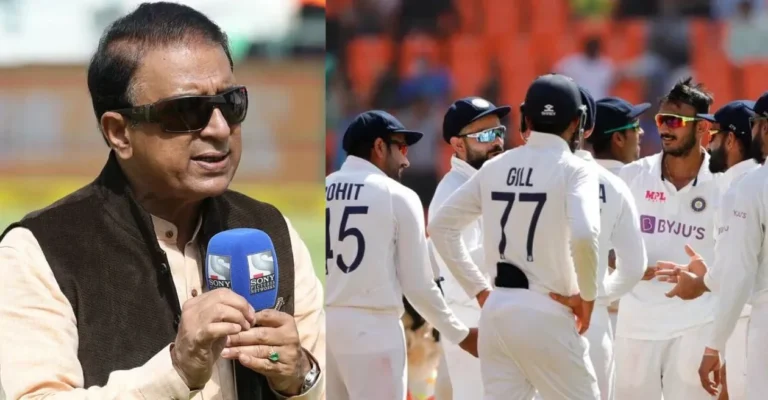Recently, a big change happened in various Indian states and many decided to lift bans on online gaming. This happened because people started realizing that online gaming can make a lot of money and is becoming more accepted in our culture.
Instead of sticking strictly to old rules that banned gaming, government officials chose to be more flexible with how they regulate gaming, considering how things are changing with digital entertainment.
This change shows that policymakers are moving away from strict rules and accepting that online gaming can be a fun and skill-building activity.
Now, it’s important to look at which states are leading this change and why they’re doing it. By understanding this change and why it’s happening, we can learn a lot about how gaming is regulated in India and how it affects our society and economy.
State-wise Analysis of Online Gaming in India
Tamil Nadu
Tamil Nadu, known for its strict anti-gambling laws, had completely stopped online gaming back in 2021. The state took a strong decision against any form of online gaming, aiming to reduce its believed negative impacts. However, in a recent change, the state government has reconsidered its position on online gaming.
After careful thought, the government decided to lift the ban, although with some regulations in place. This shift indicates a significant change in Tamil Nadu’s approach to gaming regulation, moving away from complete prohibition to a more thoughtful position.
The decision to lift the ban on online gaming in Tamil Nadu shows a more thoughtful approach to regulating the industry. By thinking again about its position, the state government has shown it’s ready to adapt to changes and what people think. While canceling the ban, the government has also put in place certain rules to make sure gaming is done responsibly.
This fair approach considers both what players want and the need to lessen any bad effects that might come from online gaming. In the end, this decision is a good move towards making gaming in Tamil Nadu healthier, making sure it’s fun while also making sure it’s not harmful.
Karnataka
Karnataka has been actively involved in the ongoing discussion about online gaming. Recognizing the possible dangers of certain types of online gaming, like addiction and misuse, the state took early action to impose limits.
These limits were meant to protect players and stop any possible harm from gaming activities that aren’t controlled. However, with the ongoing talks and changing views on gaming rules, the Karnataka government has chosen to review its approach.
Recognizing the need for clear rules, the Karnataka government has decided to remove the ban on certain types of online gaming. This choice shows a broader understanding of the importance of balancing rules with creating a good environment for the gaming industry to grow.
By highlighting the importance of clear rules, the government aims to set straightforward guidelines that encourage responsible gaming practices while also making sure the gaming sector can grow and last.
This change in direction shows the government’s commitment to supporting innovation and growth in the gaming industry, while also dealing with concerns about protecting players and maintaining ethical gaming standards.
Telangana
Telangana, right from the beginning, stood strong against the flow of online gaming, being among the first states to impose a ban on such activities. Their reason mirrored concerns shared by many: worries over addiction among players and the broader impacts of unchecked gaming.
The government’s decision reflected a careful approach, prioritizing the well-being of citizens and aiming to lessen potential negative consequences associated with uncontrolled online gaming. This position emphasized their commitment to protecting public interests and maintaining social harmony within the state.
However, in a surprising twist that surprised many, the Telangana state government announced a change of its earlier decision, choosing to remove the ban on online gaming.
This unexpected move indicates a significant change in the state’s approach to gaming rules, marking a shift from its previous position. The decision to lift the ban shows an acknowledgment of the changing gaming landscape and a readiness to accept a more forward-looking set of rules.
Goa
Goa, known for its lively tourism and entertainment industry, has been actively discussing the regulation of online gaming. Without completely stopping, the state has previously put limits on certain types of online gaming.
This careful approach aimed to find a balance between supporting Goa’s busy tourism industry and dealing with common worries about addiction linked to online gaming. By setting these limits, the state aimed to create a peaceful environment where tourism could grow alongside responsible gaming practices.
However, the current situation suggests a possible review of Goa’s rules on online gaming. Talks within the state government are happening, showing a willingness to rethink current rules and possibly make new ones. The goal is to improve how online gaming is managed, making sure it fits with Goa’s wider goals of sustainable tourism and public welfare.
This upcoming review shows a responsive reaction to the changing nature of the gaming industry and growing concerns in society. It highlights the state’s commitment to creating rules that support economic growth while also focusing on the well-being of residents and visitors.
Sikkim
Sikkim, known for its innovative gaming regulations, has actively participated in discussions surrounding online gaming. With a rich history of setting rules and regulations in the gaming sector, Sikkim has been a notable player in shaping the conversation around online gaming within the country.
While allowing certain forms of online gaming, the state has also prioritized the implementation of measures to ensure responsible gaming practices and prevent any potential abuse. This balanced approach underscores Sikkim’s commitment to creating a gaming environment that promotes both entertainment and player safety.
In recent times, there have been ongoing discussions within the Sikkim state government about reviewing existing rules for online gaming. These talks come from an acknowledgment of the changing dynamics in the gaming industry and the rise of new challenges. The state government is actively considering the possibility of introducing new measures to adapt to these changes effectively.
By revisiting and potentially updating existing rules, Sikkim aims to better deal with emerging issues and make sure that its rules can adjust to the needs of the gaming community. This proactive approach shows Sikkim’s commitment to maintaining a strong and flexible set of rules that encourage creativity while protecting the interests of players.
Reasons Behind the Policy Shift on Online Gaming
Economic Reasons: The gaming industry is growing rapidly worldwide, and Indian states see the potential to make a lot of money and create jobs by allowing online gaming. This opens up new sources for revenue generation and economic growth, aligning with states’ broader goals of boosting their economies.
Changing Views: People are starting to see online gaming as a fun and skill-building activity when it’s regulated properly, instead of just gambling. This shift in perspective reflects a growing acceptance of gaming as a legitimate form of entertainment and highlights the importance of adapting regulations to reflect evolving societal attitudes.
Regulation: States that are lifting the ban are also making detailed rules to make sure gaming is done responsibly and to address worries about young people playing too much or getting addicted. This emphasis on regulation states’ commitment to promoting responsible gaming practices and safeguarding the well-being of players.
Social Impact: There’s an understanding that online gaming can have positive effects on society, like building social connections and promoting teamwork and problem-solving skills. This recognition of the potential social benefits of online gaming underscores states’ efforts to strike a balance between fostering a thriving gaming industry and addressing societal concerns.
Technological Advancements: With advancements in technology, online gaming has become more accessible and immersive, leading to a shift in how it’s perceived and regulated by states. This acknowledgment of the evolving technological landscape underscores the need for states to adapt their regulatory frameworks to keep pace with rapid technological advancements and ensure the effective regulation of online gaming activities.
Conclusion
In conclusion, many Indian states have allowed online gaming again because they see it can make money, people like it more now, and they want rules to keep it fair. This change shows that they see online gaming as a good thing, helping make money and bringing people together. States that let gaming happen again want to make sure it’s fair and safe for everyone. Looking ahead, it’s important for states to keep an eye on the rules they make for online gaming and make changes if needed, so gaming stays fun.
Frequently Asked Questions (FAQS)
1.Why did these states decide to lift the ban on online gaming?
States lifted the ban on online gaming to boost revenue, address unemployment, and regulate the industry.
2. What were the main concerns that led to the ban being lifted?
Main concerns included loss of revenue, lack of regulation leading to illegal activities, and potential for job losses in the gaming industry.
3. How are these states regulating online gaming now that the ban has been lifted?
States are regulating online gaming through licensing, taxation, and monitoring to ensure fair play and prevent illegal activities.
4. What are the potential benefits of lifting the ban on online gaming?
Lifting the ban on online gaming can lead to increased tax revenue, job creation, and economic growth in the states.
5.vWhat is the primary goal behind the decision to lift the ban on online gaming in these Indian states?
The primary goal is to strike a balance between regulating online gaming to prevent illegal activities and harnessing its potential for economic benefits and job creation.

Utpal is a journalist covering online and offline sports in India. He has passion for everything sports and is a regular at various sports events. Follow him to stay abreast of all things sports.







